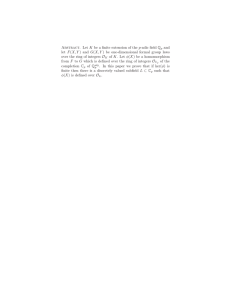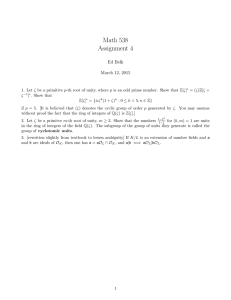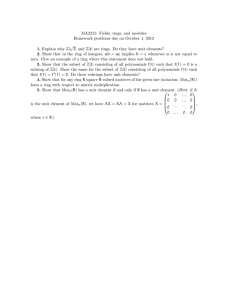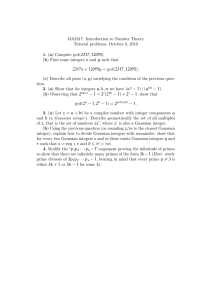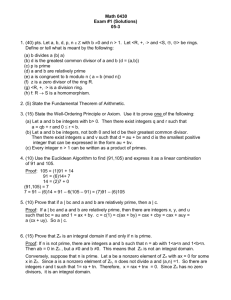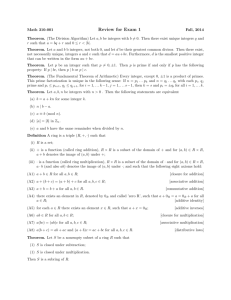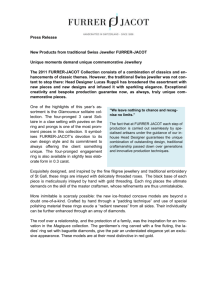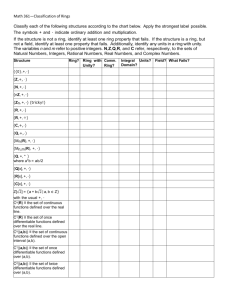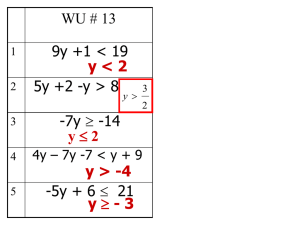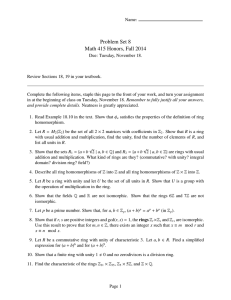Gaussian Integers - Clarkson University
advertisement
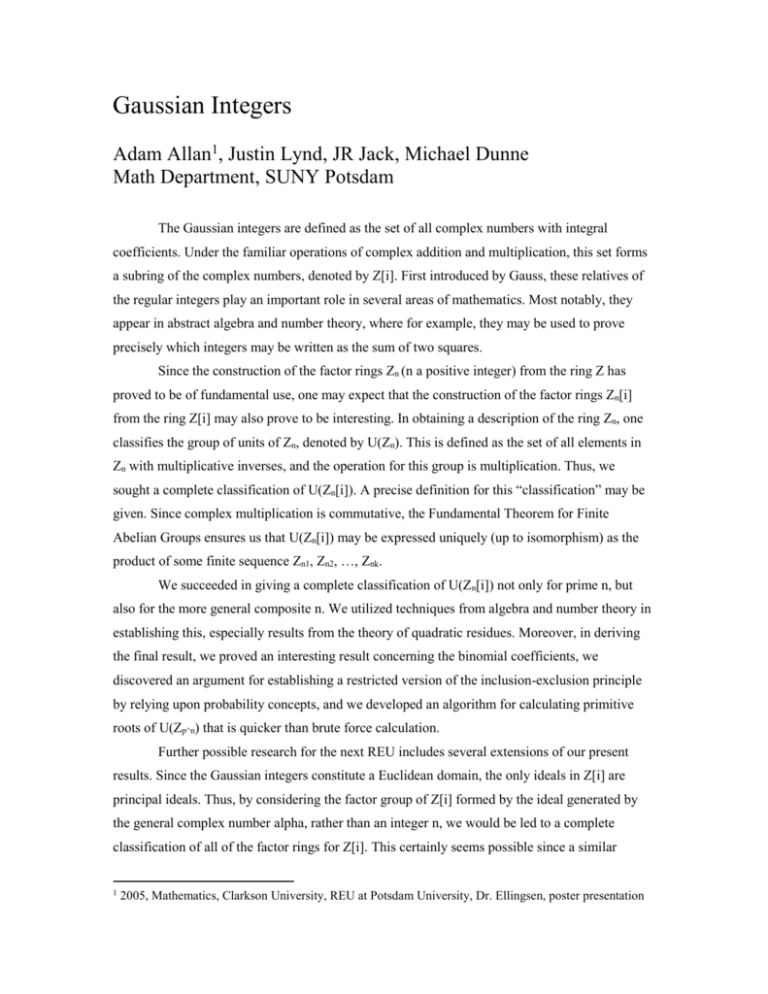
Gaussian Integers Adam Allan1, Justin Lynd, JR Jack, Michael Dunne Math Department, SUNY Potsdam The Gaussian integers are defined as the set of all complex numbers with integral coefficients. Under the familiar operations of complex addition and multiplication, this set forms a subring of the complex numbers, denoted by Z[i]. First introduced by Gauss, these relatives of the regular integers play an important role in several areas of mathematics. Most notably, they appear in abstract algebra and number theory, where for example, they may be used to prove precisely which integers may be written as the sum of two squares. Since the construction of the factor rings Zn (n a positive integer) from the ring Z has proved to be of fundamental use, one may expect that the construction of the factor rings Zn[i] from the ring Z[i] may also prove to be interesting. In obtaining a description of the ring Zn, one classifies the group of units of Zn, denoted by U(Zn). This is defined as the set of all elements in Zn with multiplicative inverses, and the operation for this group is multiplication. Thus, we sought a complete classification of U(Zn[i]). A precise definition for this “classification” may be given. Since complex multiplication is commutative, the Fundamental Theorem for Finite Abelian Groups ensures us that U(Zn[i]) may be expressed uniquely (up to isomorphism) as the product of some finite sequence Zn1, Zn2, …, Znk. We succeeded in giving a complete classification of U(Zn[i]) not only for prime n, but also for the more general composite n. We utilized techniques from algebra and number theory in establishing this, especially results from the theory of quadratic residues. Moreover, in deriving the final result, we proved an interesting result concerning the binomial coefficients, we discovered an argument for establishing a restricted version of the inclusion-exclusion principle by relying upon probability concepts, and we developed an algorithm for calculating primitive roots of U(Zp^n) that is quicker than brute force calculation. Further possible research for the next REU includes several extensions of our present results. Since the Gaussian integers constitute a Euclidean domain, the only ideals in Z[i] are principal ideals. Thus, by considering the factor group of Z[i] formed by the ideal generated by the general complex number alpha, rather than an integer n, we would be led to a complete classification of all of the factor rings for Z[i]. This certainly seems possible since a similar 1 2005, Mathematics, Clarkson University, REU at Potsdam University, Dr. Ellingsen, poster presentation decomposition as the one we used for our problem should be easily extendable, thus rendering the prime power case as the only difficult one. The consideration of Z[√a] where a is a positive, zero, or negative integer also seems to be a feasible and interesting extension, as we have already filled out many of the details. Finally, consideration of the factor rings of the non-commutative ring of the quaternions should prove to be a fascinating and interesting challenge, and may also help to clarify the notion of classifying our ring of Zn[i], to supplement the classification of our group U(Zn[i]).
